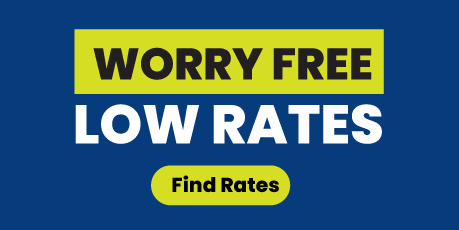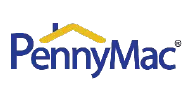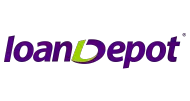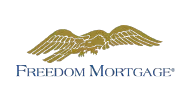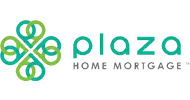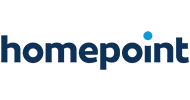What is a Conventional Cash-Out Mortgage Loan?
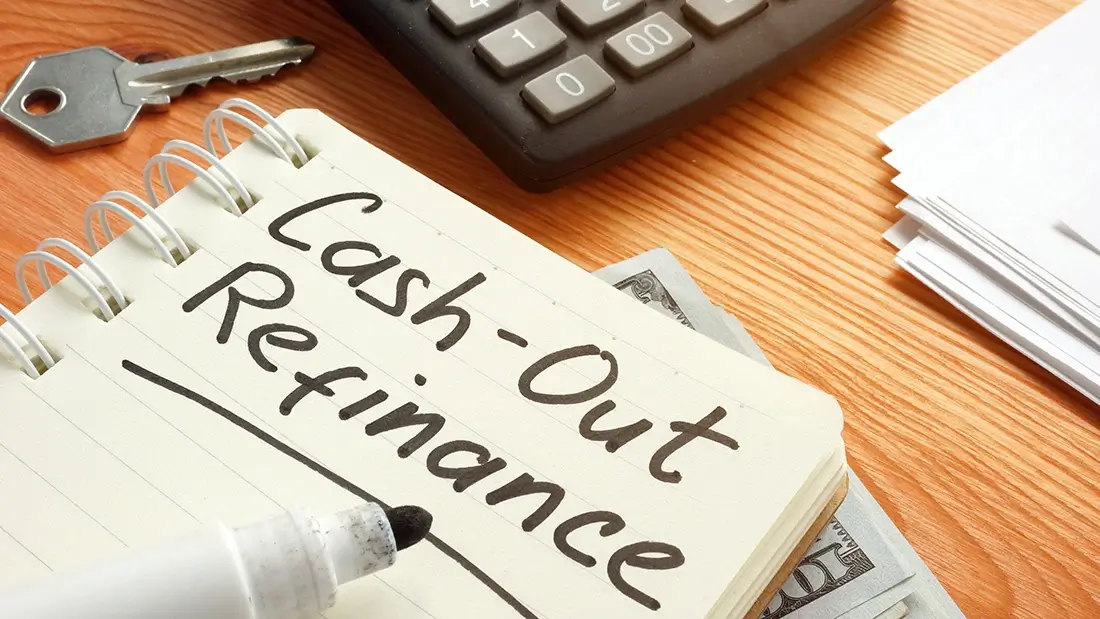

What is a Conventional Cash-Out Mortgage Loan?
A conventional cash out mortgage may be a good choice for homeowners, as it allows them to access cash from the equity in their home.
Conventional mortgage are loans that meet the unified underwriting guidelines of both Fannie Mae and Freddie Mac, two quasi-government sponsored enterprises that offer a secondary market for banks to buy and sell mortgage loans and create liquidity in the mortgage and housing markets.
Equity is the difference between how much is owed on a home and the current value. A conventional cash-out refinance may assist the homeowner in using money they have already paid into their mortgage to pay for home improvements, pay off debt, student loans or consolidate debt.
In a conventional cash-out mortgage, the homeowner refinances their existing mortgage with a new mortgage that has a higher loan balance. The difference between the new mortgage balance and the old mortgage balance is the cash-out amount available for the borrower. The cash-out amount is then paid to the homeowner in cash.
For example, if a homeowner has a mortgage balance of $200,000 and a home worth $300,000. They can refinance their existing mortgage with a new mortgage of $250,000, which will pay off the old mortgage and leave $50,000 in cash-out for the borrowers personal use.
The homeowner may then use this $50,000 for any purpose they choose, such as home improvements, paying off debt, or investing.
Most often, borrowing from the equity in a property is the most cost effective approach to minimize interest fees and charges.
We have prepared this article to assist homeowners when considering refinancing under a Conventional Cash-Out Mortgage Loan. We will provide the understanding to the guidelines, advantages and disadvantages in choosing a conventional cash-out mortgage.
How much can I borrow on a Conventional Cash-Out mortgage loan?
The maximum loan amount a homeowner may borrow with a Conventional Cash-Out Refinance is capped at 80% (LTV) of the home's value.
This means that the maximum loan-to-value of 80% multiplied against the home value will equal the final new loan amount. As an example, if a home is worth $100,000 and the max. LTV is 80%, the new loan amount will be $80,000.
Reasons to consider a Conventional Cash-Out Mortgage?
There are many unique situations in which a homeowner's may choose to apply for a conventional cash-out loan. We will give you some examples of why and what a homeowner may do with the cash-out from the conventional cash-out mortgage refinance.
Instant Access to Cash:
The most significant advantage of a cash-out refinance is that it provides homeowners with one of the most affordable methods to access cash for any purpose they choose. This cash can be used to make home improvements, pay off high-interest debt, or invest in other ventures.
Lower Interest Rates:
A cash-out refinance can also result in a lower interest rate than a home equity loan or line of credit. Since the cash-out refinance replaces the existing mortgage, it can be offered at a lower interest rate than an unsecured personal loan or line of credit.
Home Improvements and Renovations:
There are numerous advantages for a homeowner to own their own home. The responsibilities to maintain and improve the property may exceed the homeowner's monthly income budget.
How does a homeowner pay for these unexpected issues, such as plumbing leaks, broken HVAC, or the need for additional space? One of the best choices to consider is to a conventional cash-out loan.
The cash-out refinance will allow the homeowner to make upgrades, and home improvements using the equity they have already earned from their home’s value appreciating and paying down the existing mortgage balance.
The homeowner may be able to lower interest rate on the mortgage making this a better option than paying with higher interest credit cards and other loan types. This allows the homeowner to save money on interest payments.
Debt Consolidation:
A conventional cash out mortgage may give the homeowner the funds to pay down their debt. This will allow them to transfer what they owe into one lower monthly payment. The homeowner may use the money to pay off as many higher interest debts as the money will cover.
This may lower the total amount that the homeowner is paying out monthly. This savings may allow them to pay down other debts that were not covered in the conventional cash out mortgage. Also, it may provide added funds to invest and build retirement funds.
When a homeowner uses a Conventional Cash-Out Mortgage to payoff other debt obligations, the amount of money saved each month through this debt consolidation can be used to accelerate the payoff of the mortgage.
In many cases, homeowners have eliminated years of mortgage payments by applying this monthly debt consolidation savings towards the principal balance each month. This will leave homeowners debt free on their home in a much faster time period compared to not consolidating their debts.
Tax Deductions:
Another benefit of a cash-out refinance is that the interest paid on the mortgage may be tax-deductible, unlike the interest on other types of loans, such as personal loans or credit cards.
When a homeowner uses the equity in their home, in a many cases the interest paid on the mortgage is tax deductible. Cash-Out refinances offer the lowest interest rates to access cash, and the IRS tax deduction for mortgage interest paid only increase the homeowner's savings compared to unsecured borrowing costs.
What are the Requirements for a Conventional Cash-Out Mortgage?
Qualifying for a Conventional Cash-Out Refinance will depend on a few variables that will be evaluated by the mortgage lender. These qualifying variables will be are: credit score and payment history, debt-to-income ratio and loan-to-value.
While each mortgage lender reserves the right to adjust their own underwriting loan approval guidelines, most lenders adopt the same guidelines for loan approval.
General Requirements for Conventional Cash-Out Refinance:
Credit Score:
A homeowner will need a minimum credit score of 620. The credit may vary depending on the lender. Applicants must have made the last 12 months mortgage payments on time. Applicants can not have any prior foreclosures in the last 7 years and no bankruptcy chapter 7 in the last 4 years.
If any applicant does not qualify under Conventional Cash Out Refinance underwriting guidelines, applicants should consider the following cash-out mortgage refinance programs:
- FHA Cash Out Refinance: The homeowner refinancing a FHA loan requires a credit score of 580 or higher.
- Refinancing VA Loans: A homebuyer who is eligible for a VA loan may take a cash-out loan with a credit score of 580 or higher. A credit score of 580 allows the homeowner to borrow up to 90% of the home's value, and borrowers with a credit score equal to or greater than 600 may borrow up to 100% the value of the residential property.
Debt to Income Ratio (DTI):
The meaning of debt to income (DTI) ratio is the amount of a homeowner’s monthly payments divided by their gross monthly income. Most lenders require a DTI ratio of less than 50%. FHA and VA loans may allow a homeowner to qualify for a higher (DTI) depending on prior payment history and the loan to value calculated for the new requested loan amount, or the other liquid assets like 401k, stocks and bonds the applicant has disclosed.
Equity:
- Homeowners will need to take a careful look at the amount of equity is available to them. There needs to be a sizeable amount of equity to qualify for a conventional cash out mortgage. The conventional cash out refinance amount is restricted by the maximum allowed loan-to-value of 80 percent.
- The homeowner needs to determine how much cash they are needing. If they are making home improvements, it is always a good idea to get a few estimates from contractors.
How Does a Homeowner Apply for a Conventional Cash-Out Mortgage?
The information below will provide what a homeowner will need to apply for a conventional cash-out loan. After completing the requirements section above the homeowner will need to research the different lenders and make an informed decision.
- Once a homeowner determines which lender is best for them. They will need to contact them and apply for the loan. The lender will need you to provide financial documents. They will need the homeowner’s bank statements, W-2’s or pay stubs to prove their debt to income ratio. (DTI).
- Once approved the lender will require an appraisal by a professional appraiser. An appraisal is a report which indicates the value of the home. The appraiser will check square footage of the home, any improvements, and comparisons of other homes in the area. This will allow the lender to determine how much they are willing to lend the homeowner.
- Once all the approval process, appraisal and underwriting have been completed the lender will provide the homeowner with a closing date.
- The homeowner will not get cash immediately. The Truth in Lending Act requires the lender to give the homeowner a period of 3 days to cancel the loan, in case the homeowner changes their mind.
- The homeowner will receive their cash 3-5 days after closing.
What Some of the Disadvantages of a Conventional Cash-Out Mortgage?
Compared to other borrowing sources, a Conventional Cash Out refinance will provide the applicant with some of the lowest available finances charges compared to second mortgages, home equity lines of credit and unsecured personal loans and credit cards.
Disadvantages of a Conventional Cash-Out Mortgage
Higher Mortgage Payments:
A disadvantage of a cash-out refinance is that it may result in higher mortgage payments. Since the new mortgage balance is higher than the old mortgage balance, the monthly mortgage payments will more than likely increase.
However, considering all other financing charges like interest rates, refinancing to access the equity in the home is historically the best approach to get cash.
Increased Debt:
A cash-out refinance can also increase a homeowner's debt load. Since the new mortgage balance is higher than the old mortgage balance, the homeowner will have a larger debt load to manage, unless the borrower is using funds to payoff other debt obligations.
Terms:
The homeowner terms may change. When paying of the original mortgage and replacing with a new loan, the terms of the loan may change. Be sure to doublecheck the closing disclosure provided by the lender and evaluate your new loans terms before you close.
Closing Costs:
The fees associated with a cash-out refinance can add up quickly. A cash-out refinance may result in higher closing costs than a traditional refinance.
Risk of Foreclosure:
If the homeowner is unable to make higher mortgage payments, they may fall behind on their mortgage payments, which could lead to foreclosure.
How will my monthly mortgage payment change after refinancing?
For most homeowners, their monthly mortgage payment will increase with a cash-out refinance because they are borrowing more than they owe on the mortgage. However, if interest rates are lower than they were when you applied for your current mortgage, your payment may stay the same or go down.
If the borrower is using these cash-out funds to payoff other debt obligations, their overall monthly bills will most likely be decreased, while their mortgage payment will increase. In most cases, debt consolidation cash out mortgage refinance return a lower total monthly payment plan while preserving the good credit history of the borrower.
Conventional Cash Out Refinance Conclusion:
Whether the homeowner wants to pay off high interest debt or make home improvements, it is necessary for them to do their due diligence. We are here to answer questions and assist the homeowner with their decision.
Please read through this information and if you have questions we are here to assist.
Our expert mortgage officers are available to assist with any questions you may have.
Please call us at 1-866-713-9292 or apply online.

